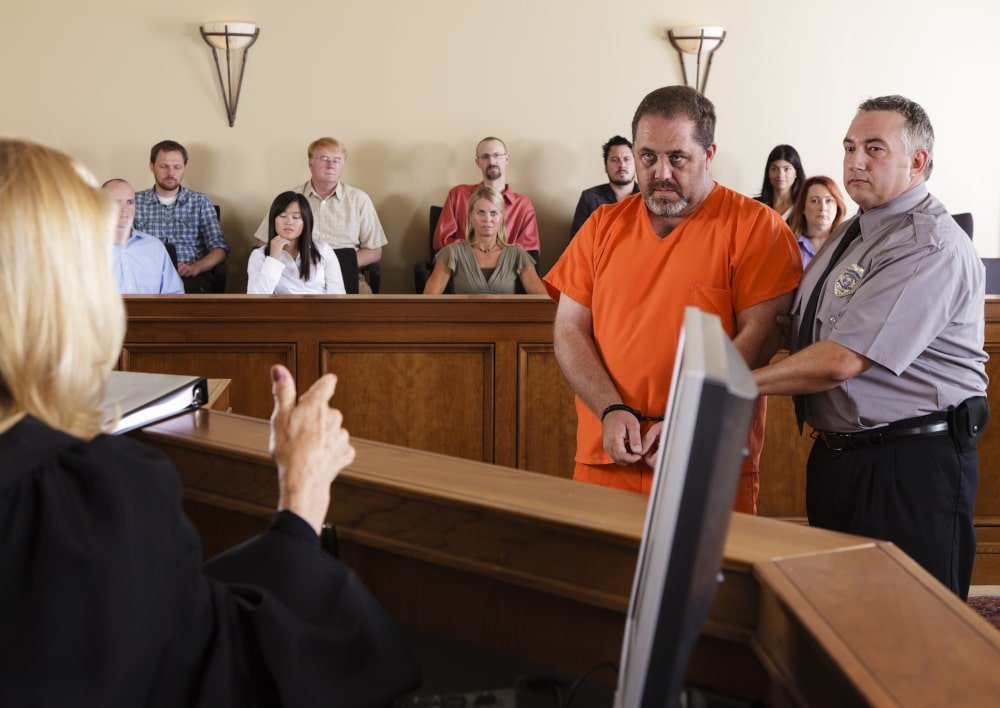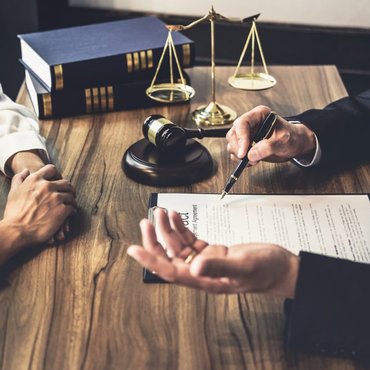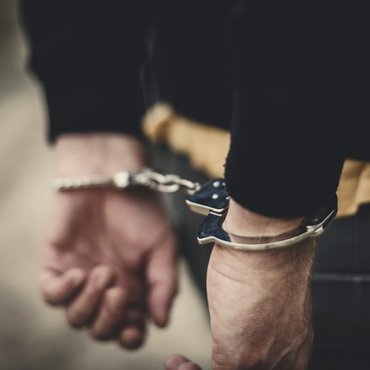Facing first-time trial on criminal charges in Ontario is akin to entering an unfamiliar arena in which you will be playing a new sport without really understanding the rules, positions of the other players, culture of the game, or language used to describe the action. And sure, you might think that you have a sense of what it will be like based on what you’ve seen on the news or courtroom dramas on TV but know that criminal court in real time represents a whole different program.
To help those facing first-time trial on criminal charges,
the Toronto-area criminal lawyers of Mass Tsang
have put together this comprehensive guide for the accused to help them navigate through the unfamiliar legal landscape. While this guide cannot cover every aspect of the criminal trial process in exacting detail, we believe we’ve covered the basics that anyone facing trial might need to know.
While we trust that this guide will be helpful, we also encourage anyone facing criminal charges to seek out the services of an experienced criminal lawyer to ensure the best outcome possible. Not only will a skilled criminal lawyer help smoothly guide you through what is a complex process, but also ensure that every aspect of your particular case is thoroughly examined to secure the most favorable resolution of the charges.
Key Court Personnel
Trial Judge
— the trial judge is an independent and impartial judicial officer who directs the proceedings, considers the evidence, and determines whether you are guilty or not guilty. In jury trials, the judge helps the jury assess the weight and relevance of the evidence, but the jury makes determinations regarding guilt. The judge in both types of trials decides on the sentence to be imposed upon convictions.
Trial Crown Attorney (usually referred to as “the Crown” or “prosecutor)
— the Crown is the lawyer(s) charged with bringing charges against you and with proving all essential elements supporting the charges can be proven “beyond a reasonable doubt.”
Defence Lawyer (usually referred to as “the defence”)
— this lawyer is hired or otherwise retained by the accused to help them navigate the complexities of criminal law and the court system, and mount an effective defence against the criminal charges, or otherwise mitigate the severity of punishment if the accused is convicted.
Court Clerk
— this judicial official sits in front of the trial judge and assists them by reading out the charges, swearing in witnesses, and managing physical evidence presented at trial, among other things.
Court Reporter
— this judicial official transcribes everything said at trial or manages equipment that records the trial proceedings.
Different Steps in the Criminal Trial Process
There are more than 12 different steps that may be involved in your criminal trial process, though not all may be applicable to your specific case depending upon various circumstances, such as the type of offence, whether you have a lawyer, and what kind of trial you choose should that be an option based on the severity of the offence. The steps include:
-
Arrest and Charges
-
Bail Hearing
-
First Appearance/Arraignment/Disclosure
-
Crown Resolution Meeting
-
Judicial Pretrial
-
Preliminary Hearing
-
Trial
-
Judgement
-
Sentencing
-
Appeal
With less serious offences, the courtroom portion of the trial process can be wrapped up in less than a day if the trial can proceed following the arraignment without the need for the other steps. Of course, an appeal of the sentence if convicted would necessitate additional days in court.
Arrest and Charges
Your detainment and/or arrest are the first steps in the criminal trial process. The police, it should be noted, can legally detain you for up to 24 hours without laying charges. However, if you have been detained (or immediately arrested) they must inform you of the reason for the detainment/arrest and your right to consult with a lawyer “without delay.” Whether you were arrested at or near the scene of a crime, or as the result of an investigation, the police have the option to release you on a promise to appear in court or detain you until you can be brought before a judge or justice of the peace for a bail hearing. Generally, the more serious the crime, and/or if you represent a potential threat to the public, the more likely you will be held for a bail hearing. If released, you should be provided with documents detailing your scheduled appearance in court and the charges.
Bail Hearing
Bail hearings are complicated affairs at which the court addresses factors such as:
-
Whether the accused will show up in court.
-
Whether the accused is likely to re-offend.
-
Whether the accused will comply with bail conditions.
-
The strength of the charges against the accused.
In many cases, a judge or justice of the peace will not allow bail unless a surety will agree to act as a supervisor to ensure that the accused attends court and follows other conditions of the release. The surety is often required to pledge a cash bail that may be forfeited if the accused fails to show up in court or otherwise breaches conditions, with the knowledge of the surety.
Given the complicated nature of bail hearings, and importance to the case in gaining pre-release, obtaining the services of a
bail hearing lawyer
is highly advised.
First Appearance/Arraignment/Disclosure
Your first appearance in court typically starts with an arraignment during which your identification is confirmed, the charges against you are publicly announced, and you will be asked how you plead to the charges. Depending upon the seriousness of the criminal charges, you may have to option to choose the type of trial, whether by provincial court judge, superior court judge, or by superior court judge and jury.
Less serious offences are often tried by the provincial court judge after the arraignment, depending in part on whether the accused has received disclosure of the details of the evidence by the Crown and that any relevant witnesses (such as police) are present. To proceed, the Crown (prosecutor), defence (accused or their lawyer), and judge must agree that specific pretrial elements such judicial pretrial preliminary inquiries are not necessary. Perhaps needless to say, but a guilty plea will also usually bring a quick end to the trial, though the judge may choose to reserve sentencing for another day.
For less serious offences the Crown usually provides the accused with disclosure materials prior to the first appearance. These materials include:
-
Diagrams, photographs, and descriptions of physical evidence, if any
-
Police reports and notes
-
Witness statements
-
Other details regarding evidence
For more serious offences, disclosure is usually provided, or arranged for, during the first hearing. With especially complicated cases the disclosure process can take weeks, months, or prove to be an ongoing process.
Any additional hearings needed to resolve the case are referred to as “adjournment” or “remand court appearances, and, absent a lawyer, your presence will be required at all of them.
Crown Resolution Meeting
For more serious charges Crown resolution meetings are held between the Crown and the defence in an attempt to reach a settlement. The Crown is not obligated to hold such meetings—and will likely not—if you do not have a lawyer. In essence, the meetings provide the prosecutor and defence lawyer an opportunity to lay their cards on the table to try to come up with a negotiated settlement of the charges. If a plea deal can be reached, and you agree to its terms, it will be presented to the judge for their consideration.
Judicial Pretrial
Judicial pretrial is similar to the Crown resolution meeting, though in the presence of a judge, who informs the parties on how they would likely rule on the case and what sentence would likely be handed down. The judicial pretrial judge will not serve as the trial judge but can accept a guilty plea if the parties can agree to a plea deal settlement. The judicial input provides both parties with a more realistic assessment of their legal positions.
Preliminary Inquiry
The defence can use the preliminary inquiry to force the Crown to prove that it has enough evidence to proceed to trial. While most prosecutors can easily surmount this potential bar, the defence also uses it to better assess evidence and gauge potential tactics that the Crown might use during trial.
The Trial
If your trial is not held during the first appearance and involves much of the pretrial activity described above, it is likely going to be a complicated affair that may last many days. In short, the Crown will provide and opening statement that describes the allegations against you and evidence that supports them. The Crown then calls and interviews relevant witnesses and introduces supporting physical evidence.
The defence, meanwhile, is allowed to cross examine witnesses, challenge their statements, and challenge or refute the physical evidence presented. Cross-examination can lead to further questions from the Crown to the witness if new information arose during the cross examination. The defence can also call their own witnesses and introduce any physical evidence that might refute or otherwise compromise the Crown’s allegations, witness testimony, and physical examination. Naturally, the Crown can also cross examine defence witnesses and challenge supporting physical evidence.
After all evidence has been presented, the Crown and defence are each allowed to make closing arguments about the already presented evidence that support their respective stances on your guilt or innocence. New evidence cannot be offered during these closing submissions.
Judgement
Judgment will depend upon several factors, including whether the trial was heard by a judge or jury. A jury may deliberate for hours and even days to come to a conclusion based on the complexities of the case. A judge might find you guilty or not guilty immediately after closing arguments or after an adjournment to later in the day or at a later date. In making their judgements, judges must specify in writing exactly how and why they came to their decision on finding you guilty or not guilty.
Sentencing
If you have been found not guilty, the case is over and you are free to go. If found guilty, the judge may sentence you immediately or reserve sentencing for a later date. In some cases, the judge may hold a sentencing hearing at which the Crown and defence can offer their opinion about what they think an appropriate sentence should be. The defence is also allowed to call evidence and make other submissions that support their sentence recommendations, while the Crown may file victim impact statements that support its recommendations. The judge may also order a pre-sentencing report before passing sentence.
Sentences can include a conditional or unconditional discharge (no punishment), fines, probation, jail, prison, and/or specific orders, such as alcohol and firearms prohibitions, curfews, and no-contact directives.
Appeals
If convicted you have the right to appeal it, the sentence, or both within a designated timeframe based in part on the crime. It should be noted that the Crown can also appeal acquittals or sentences handed down by a judge.
Other Factors to Consider
Essential Elements of the Offence
— essential elements of the offence(s) you are charged with should be clearly included as part of the charging documents. To be convicted, the Crown must prove that each essential element of the charge(s) have been proven “beyond a reasonable doubt.” This includes proving that you “intentionally and/or knowingly” committed the offence.
Charter of Rights and Freedoms
— this is a bill of rights in the Constitution of Canada that in part directs how you are treated by police and the courts. Charter Rights violations by police and the courts can compromise evidence used in court cases and otherwise negate the strength of the Crown’s case.
Canada Evidence Act
— Combined with the Charter of Rights and Freedoms, this Act guides how evidence can be used and considered during criminal trials.
Language
— Anyone charged with a criminal offence who speaks French as a first (or only) language is entitled to a French trial. Other foreign language speakers, whether the accused or witnesses, are entitled to interpreter services.
Consult with Mass Tsang for your Criminal Defence Needs
We trust that you have found our guide helpful but suggest that if you or a loved one is facing criminal charges in the Ontario court system, don’t rely on this guide—secure the services of an experienced criminal lawyer. Given the potential penalties, criminal record, and disruption to your life that can result from a guilty conviction,
contact the highly experienced lawyers at Mass Tsang
to ensure the most favorable outcome possible.






